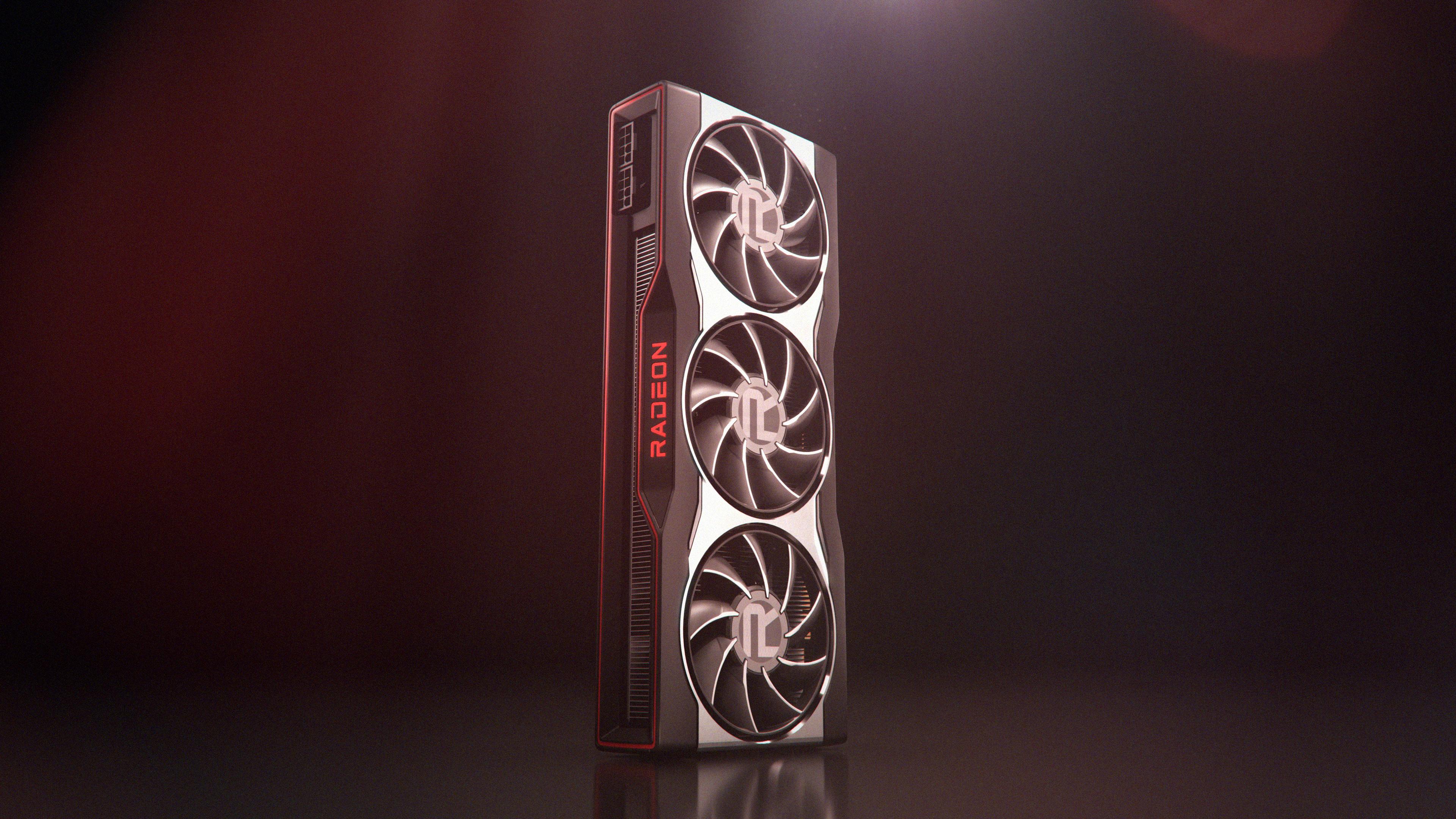AMD Big Navi clock speeds just leaked — and RTX 3080 should be worried
Nvidia GeForce RTX 3080 could be in trouble thanks to AMD Big Navi's rumored 2.4GHz clock speed

AMD Big Navi, which will probably be the Radeon RX 6900 XT, could destroy the Nvidia GeForce RTX 3080 on GPU clock speeds, and potentially beat it in overall performance.
Reasonably reliable leaker Patrick Schur tweeted a series of specs for Navi 21 XT, aka Big Navi, which said the graphics card will have 16GB of GDDR6 video memory and a 2.4 GHz “Game Clock.” That’s presumably the clock speed of the GPU when running games, rather than the base clock speed or maximum speed.
- Nvidia RTX 3080 vs. RTX 2080 Ti: How much better is it?
- Where to buy the Nvidia GeForce RTX 3090
- Just in: Xbox Series X could be getting VR — here's the proof
Comparatively, the GeForce RTX 3080 has 10GB of faster GDDR6 VRAM, but only clocks to 1.71 GHz. Depending on the interplay between clock speed and memory speed and bandwidth, the Radeon RZ 6900 XT might have the scope to take down the mighty $699 Nvidia graphics card.
A clock speed of 2.4 GHz is also the fastest speed a consumer-grade graphics card has ever got to, meaning AMD could set a new benchmark in that case. Speaking of benchmarks, the ones we’ve seen lead so far have Big Navi tipped as nipping at the heels of the RTX 3080.
Navi 21 XT16GB GDDR6255W TGP~2.4 GHz (Game Clock)October 17, 2020
However, the Radeon RX 6000 series, due to be revealed October 28, is set to be made up of multiple graphics cards. So that means the leaked benchmarks so far might not be for Big Navi, which we’re taking to be the most powerful next-generation GPU AMD will be able to bring to bear in the graphics card arena.
Big Navi, and indeed the rest of the Radeon RX 6000 graphics cards, will use the new RDNA 2 GPU architecture, which can also be found in the PS5 and Xbox Series X. We know those consoles will support ray-tracing, but we’re not sure exactly how. That suggests that the upcoming Radeon graphics cards will support ray-tracing, but whether they have dedicated hardware to do so like Nvidia's latest GeForce RTX 3000-series has yet to be made clear.
All is likely to be revealed next week at a big AMD Radeon showcase. We’re hoping to see a suite of powerful graphics cards that can challenge Nvidia's latest high-end GPUs but also potentially undercut them on price, injecting some serious competition into the market.
Sign up to get the BEST of Tom's Guide direct to your inbox.
Get instant access to breaking news, the hottest reviews, great deals and helpful tips.
Roland Moore-Colyer a Managing Editor at Tom’s Guide with a focus on news, features and opinion articles. He often writes about gaming, phones, laptops and other bits of hardware; he’s also got an interest in cars. When not at his desk Roland can be found wandering around London, often with a look of curiosity on his face.
-
Joseph_138 Have we learned nothing from the CPU clock speed wars? You can't compare clock speed of two processors that are not the same. Just because AMD is clocked higher, doesn't necessarily mean it performs better.Reply -
refactorized ReplyHave we learned nothing from the CPU clock speed wars? You can't compare clock speed of two processors that are not the same. Just because AMD is clocked higher, doesn't necessarily mean it performs better.
seems this article is pretty careful about hedging any real comparison:
Comparatively, the GeForce RTX 3080 has 10GB of faster GDDR6 VRAM, but only clocks to 1.71 GHz. Depending on the interplay between clock speed and memory speed and bandwidth, the Radeon RZ 6900 XT might have the scope to take down the mighty $699 Nvidia graphics card.
-
Odw Literally none of this matters.Reply
The "war" isn't won by the fastest card. If you look at Steam hardware survey, people tend to currently run Nvidia xx60 and xx70 cards. Enthusiasts aren't the biggest source of revenue. The big question will be: Can AMD make a card which beats the upcoming 3060, for an attractive price?
Nvidia 30xx was a paper launch. Apart from performance-per-dollar, the question is: can AMD get more than a few hundred cards to retailers before Nvidia can sort out its distribution issues?Gamers will not care about their team red/green loyalties much — for most gamers and parents it all depends on "which budget card can I actually buy this Christmas to replace my child's aging GTX 960"

